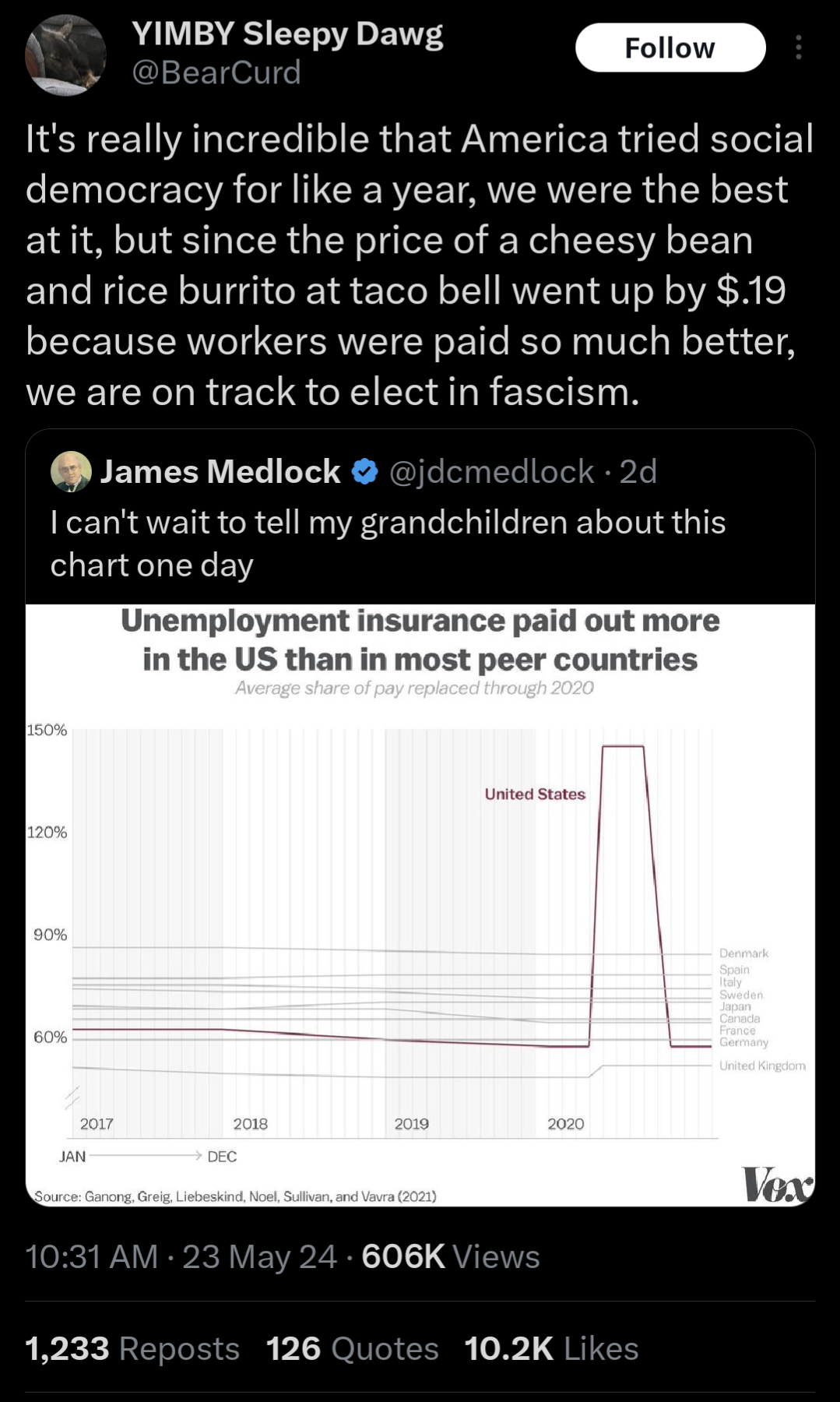the_dunk_tank
It's the dunk tank.
This is where you come to post big-brained hot takes by chuds, libs, or even fellow leftists, and tear them to itty-bitty pieces with precision dunkstrikes.
Rule 1: All posts must include links to the subject matter, and no identifying information should be redacted.
Rule 2: If your source is a reactionary website, please use archive.is instead of linking directly.
Rule 3: No sectarianism.
Rule 4: TERF/SWERFs Not Welcome
Rule 5: No ableism of any kind (that includes stuff like libt*rd)
Rule 6: Do not post fellow hexbears.
Rule 7: Do not individually target other instances' admins or moderators.
Rule 8: The subject of a post cannot be low hanging fruit, that is comments/posts made by a private person that have low amount of upvotes/likes/views. Comments/Posts made on other instances that are accessible from hexbear are an exception to this. Posts that do not meet this requirement can be posted to !shitreactionariessay@lemmygrad.ml
Rule 9: if you post ironic rage bait im going to make a personal visit to your house to make sure you never make this mistake again
view the rest of the comments


the myth is that increased wages cause inflationary spirals. marx argues in wages, price, and profit that increased wages will lead to increased prices, but with two important caveats.
it's a temporary increase caused by the increased demand for basic necessities and mass produced minor luxuries, but that comes from a decreased demand for high end luxuries and the expenses of the capitalist class due to reduced profit margins arising from the general increase in wages. which means capital will flow from production in high end goods and services into the mass production of consumer goods and services, increasing the supply to bring the price back down to long term equilibrium.
and the general wage increases are necessarily larger than the overall price increases, so even though prices are expected to increase under a marxist model, the workers still gain a net benefit from the wage increases. their overall purchasing power goes up.
so his comment is in line with that. a $0.19 increase in the burrito is trivial compared to the benefit workers received from the payouts.
I've been schooled Thanks
Thanks